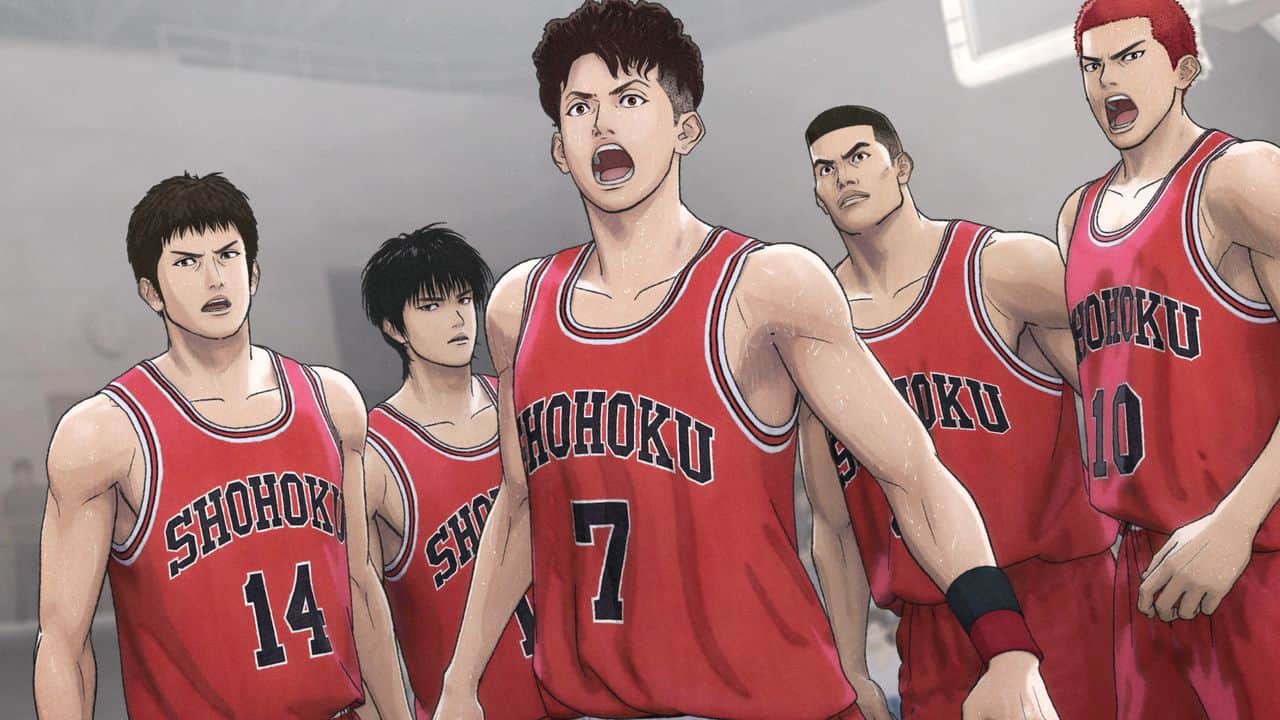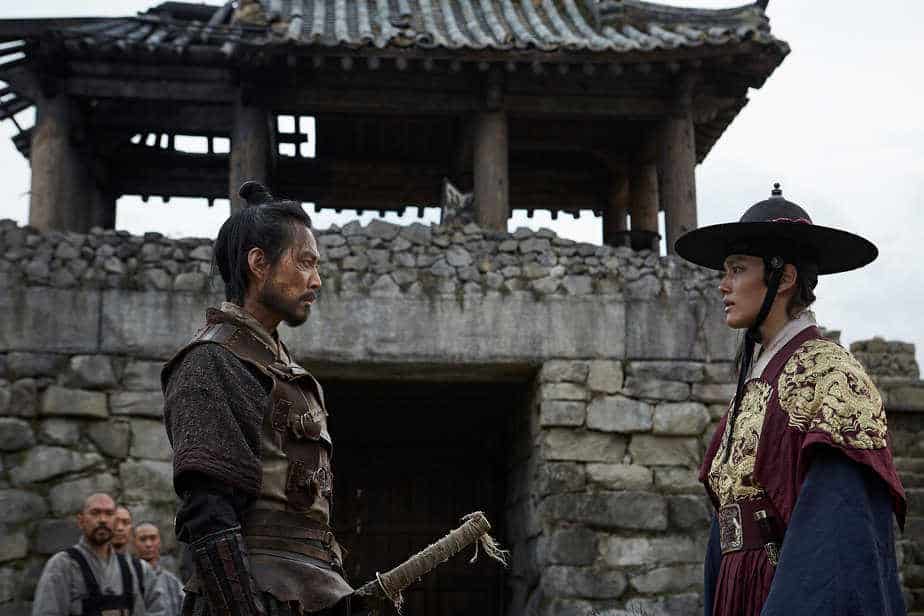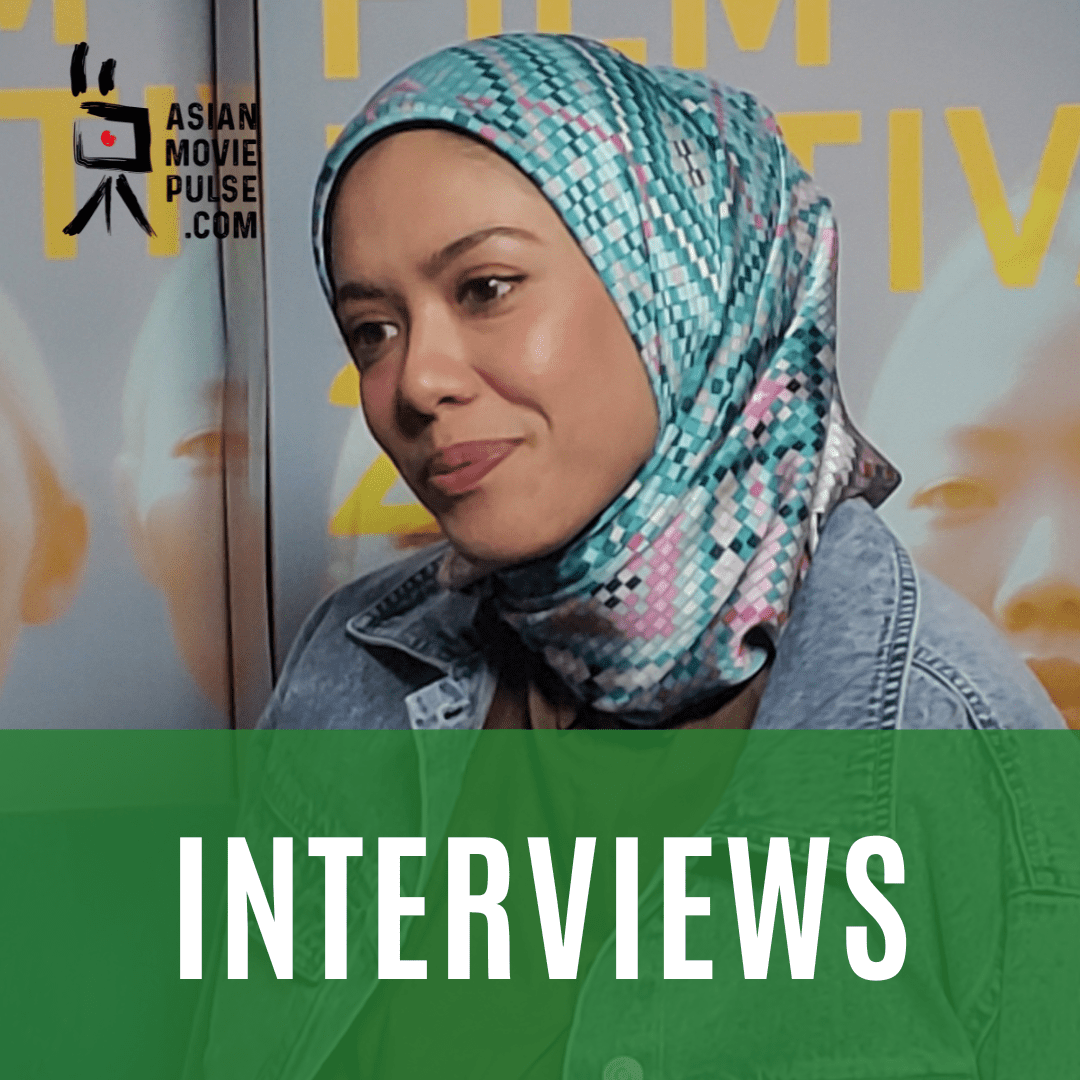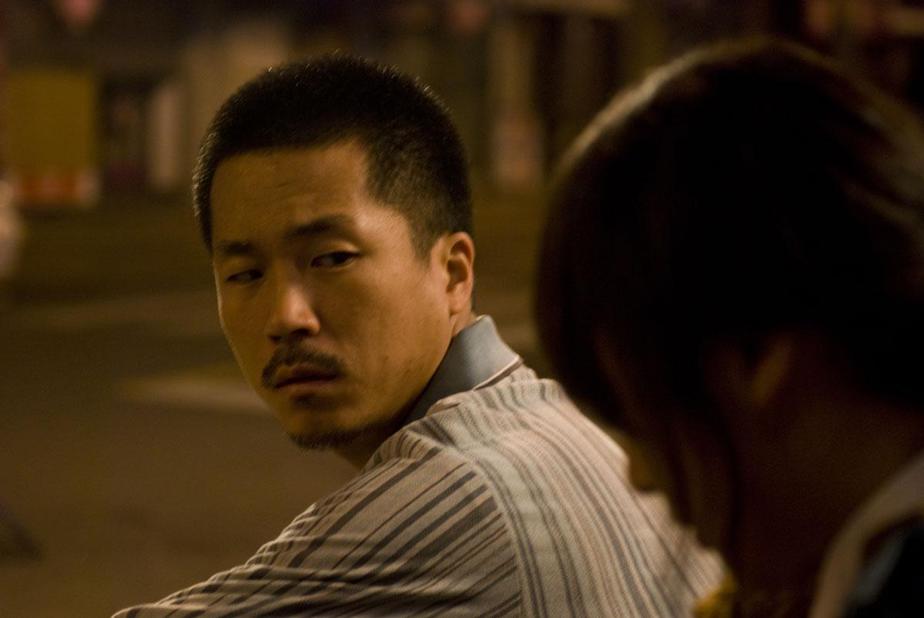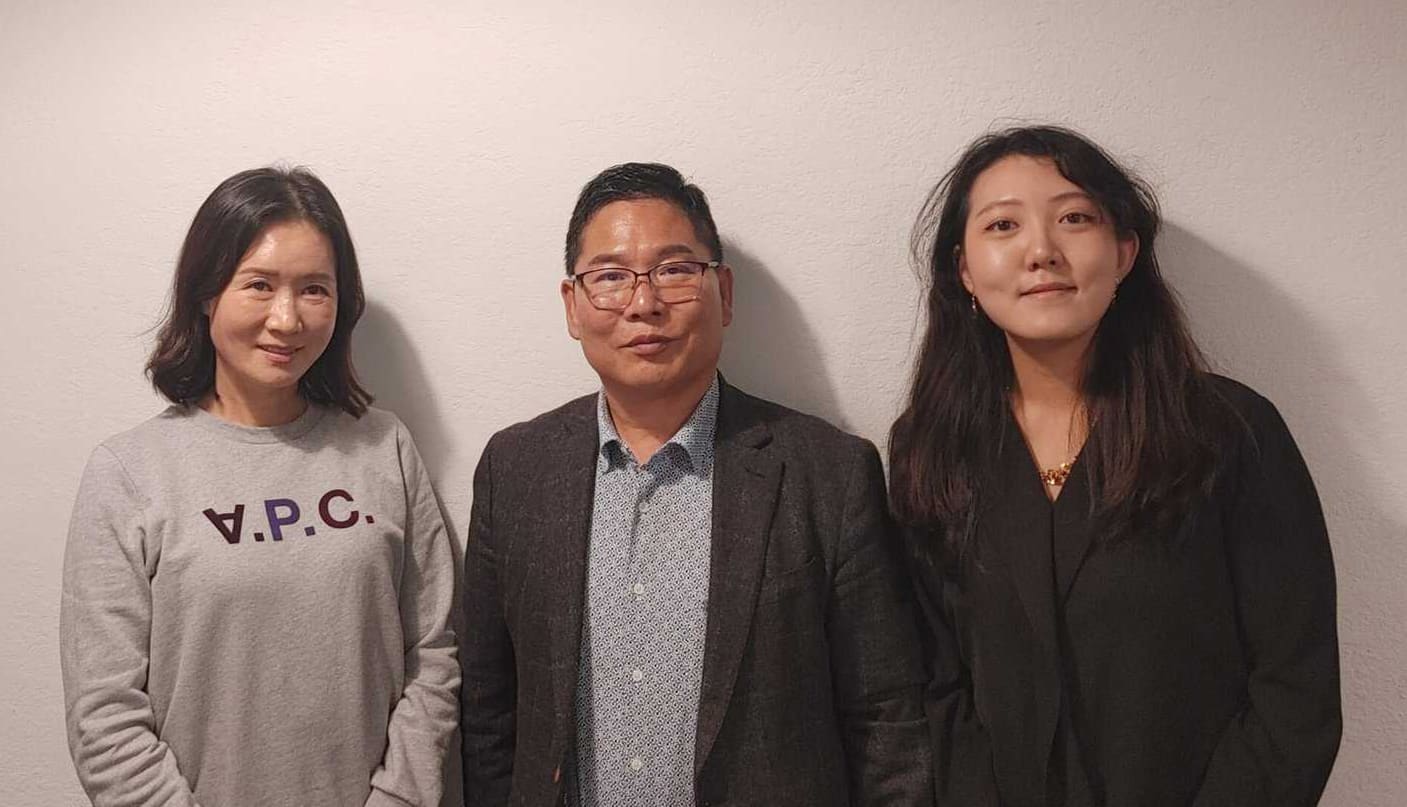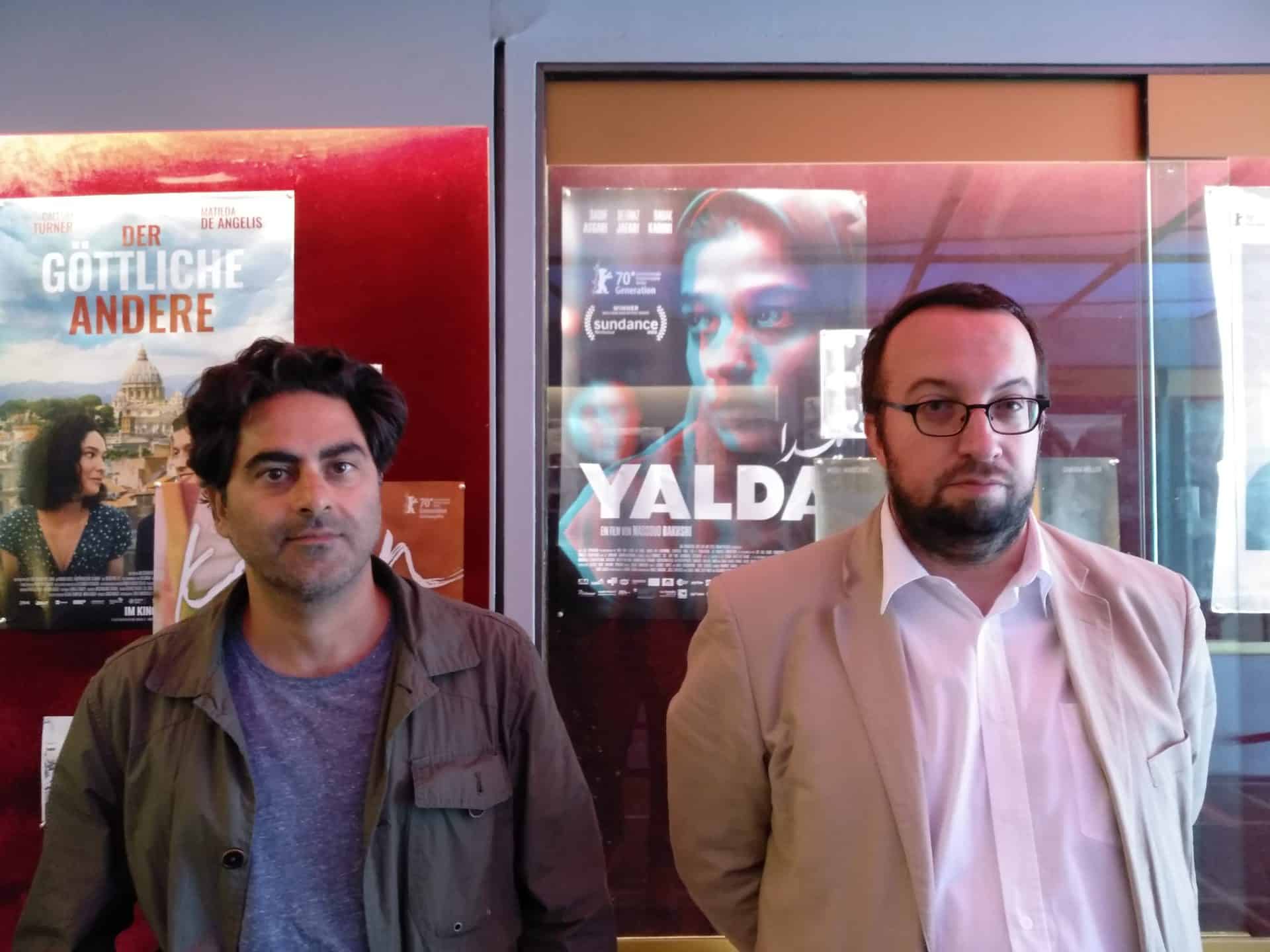Baris Sarhan was born in Istanbul. After his visual arts education, he worked as a graphic designer, art director, and commercials director. In 2009, he made his first short film, “Slippers”, and then went to New York and studied cinema at NYU. He continues to shoot feature and short films, commercials, music videos, and animations, creating his own visual language. His first feature, “The Cemil Show”, made its world premiere at the 50th Rotterdam Film Festival.
On the occasion of its screening in Thessaloniki International Film Festival, we speak with him about the inspirations behind the film, old Turkish movies, Cemil and Burcu, his cooperation with the actors, Turkish cinema, and many other topics.
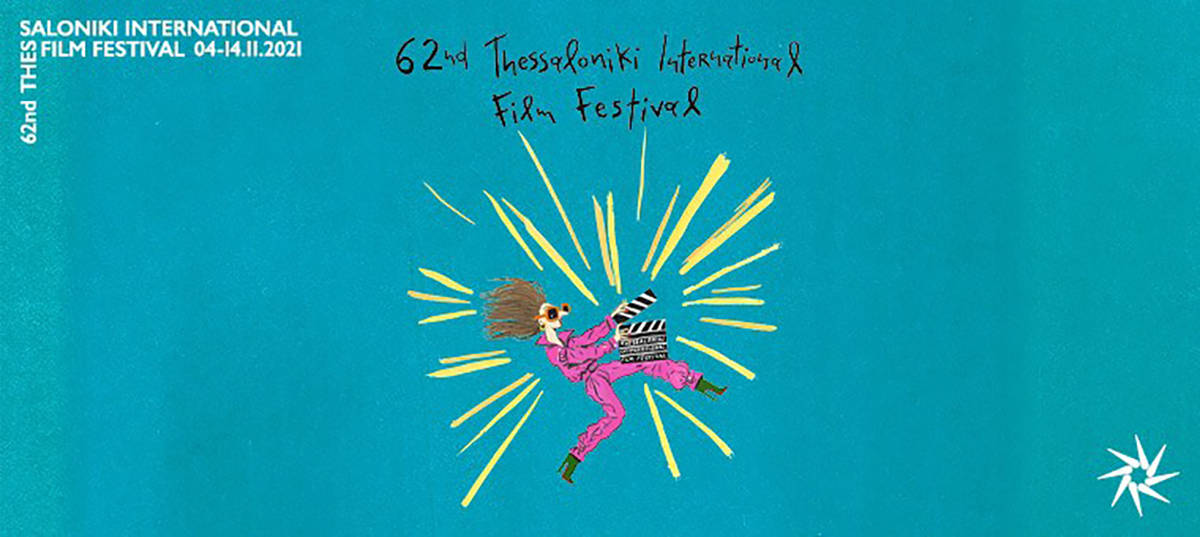
What was the inspiration behind the film's story and characters? Why did you decide to shoot a movie that draws much from Turkish old movies?
I started by creating an atmosphere, focusing on a mall and what goes on in the background of such an operation. Then I created the main character who inhabits that space, Cemil. Then I thought I should find another person, whom the first person admires. Then I came up with that old actor character, who was really famous but now, he is alone, due to his egoism. After that character came into the story, his movies came accordingly, with that very specific style of Yesilcam. So, everything came step-by-step. As soon as these movies came into the narrative, the whole atmosphere and style of the film changed, because these titles are so powerful. Then I had the idea of making a parallel montage with the lives of these characters and these old Turkish movies, which I thought would make the film more powerful and would also allow the audience to understand the feelings of the protagonists more. Essentially, I wanted to show that they “speak” to each other, the protagonists and the characters of the old movies.
Regarding my inspirations, in the beginning, I had none, I did some reading though, about “Century of Self” which was also made into a great documentary. In those days, I was working as an art director for advertisements, and I was not happy, only using my talent for others. When I saw this documentary and read about the concept of being famous, I found my subject. Maybe because I felt guilty for creating this “world”, this shiny and colorful world of advertising, therefore I wanted to present the side effects of this world, what does that world do to the hearts and souls of the people. Especially sensitive people, like Cemil, who sees the world in his own eyes, and he is more affected by it than us.
Do you like these old films, though?
No! In the beginning, one of the main themes of “The Cemil Show” is fake culture, especially in our modern Turkish times, I always think that most of the parts of modern Turkey are fake. We are trying to be like the Western world, but what we end up with is a copy. These ideas are really important for me and these black and white films of the past are copies from the American and French ones of the time. Cemil copies a copied character, essentially. This duality of expression was very important to me. In the end, the question I wanted to pose is if you can find your own voice by copying something.
The director Cemil auditions for in the beginning of the movie is portrayed as a really obnoxious character, always complaining, not being satisfied with anything, cursing all the time etc. Is that how those directors of the past actually were?
I think they used to be like that, but now they cannot act in that way anymore. The whole system changed. In those days, however, yes, that is how they acted, they were the kings of the production, they could do anything they wanted, treat people any way they wanted. As the years passed, however, these filmmakers lost their influence, maybe due to their egoistic characters.
Let's just say in real life, you are holding an audition, and Cemil comes to participate. Do you hire him?
No! In advertising, we have lots of auditions and for the most part, we are working with non-professional actors, because frequently we need a lot of extras. So, I meet people like Cemil all the time, they are getting my number, following me on Facebook, they are bringing their scripts to us. I know this type of people, how they feel, sometimes I can empathize with them, sometimes not, but I realize what they need, to be heard by someone, to be noticed, to be accepted.
Would you go out for a drink with Cemil?
No (laughter).
You really despise your protagonist, don't you?
(laughter) Yes, he is the side of my soul that I hate. I don't want to face this side, so I just put it in my movie.
Is it difficult shooting a movie with characters you don't like, because none of the protagonists are actually likeable?
Maybe I will say the opposite of what I just said, but I like Cemil, I just would not go for a drink with him. I can understand him, or maybe I want to understand him, I want to understand Burcu, I want to understand Zafer. Yes, Cemil is not a likeable character, but still, he is one you want to see and understand, this was my goal in the end. Because in this kind of cinema, you are creating underdogs, and sometimes, they are really bad-asses, like Tony Manero or Joker. My character, however, is naive, not a real bad guy, he is pretending to be a bad guy, because that is the only way to express himself, he feels that is the only way to be “seen”. It is just a game for him, he is acting like a child essentially.
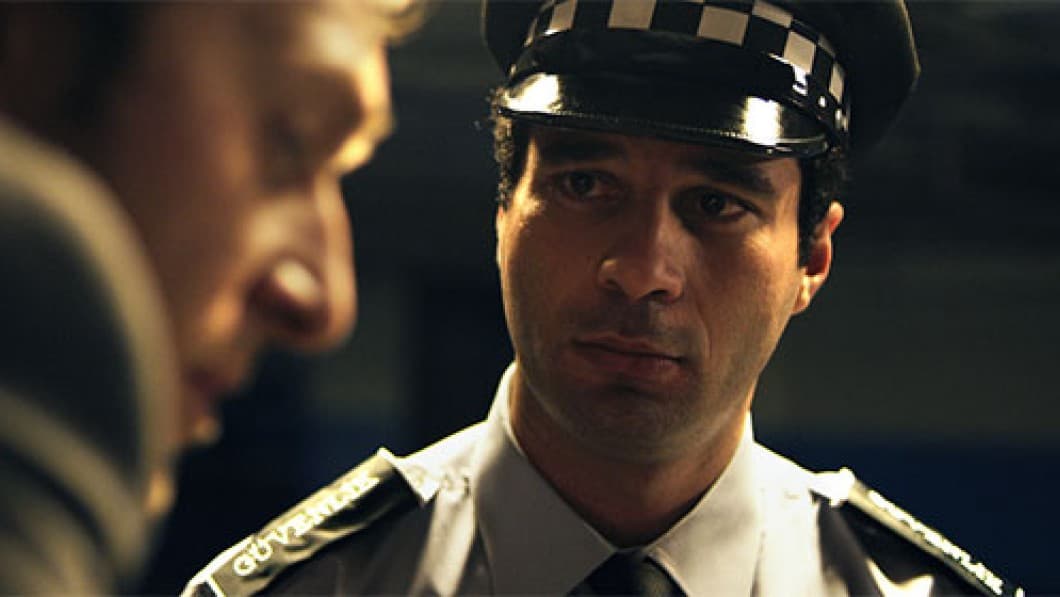
You portray his boss, Zafer, like a buffoon, always moving around on his segway inside the mall and acting all high and mighty. Why?
As we were location scouting in a shopping mall, the chief of security came to us on his segway and started talking the way Zafer does in the movie. As soon as I met this guy, I thought I really needed to use that segway in my movie, because I think it makes him look down on you, as if he is in control of everything, circling around like a shark. When I started thinking of the mise-en-scene of that scene, I told my colleagues that I wanted it to be like the attack of a shark, in the middle of a sea of security guards. In the end, however, we realize he is not a very strong shark.
So, when you were auditioning for the role, did you search for someone who knows how to drive a segway?
(laughter) Alican Yucesoy, who plays Zafer, is a very talented guy, so, as soon as he jumped on the segway, he immediately started riding rather well, it was not a problem for him.
Can you tell me a bit about the character of Burcu, who I feel is the one who changes the most, being kind of a femme fatale but also a neglected daughter and mistress.
During the script-writing process, she was the character I worked on the most, because it was really difficult for me to empathize with a woman. Burcu is the reason for us to understand Cemil, where this kind of people come from. We don't know anything about Cemil's past but when we see Burcu's character, we can understand why these people behave like that, maybe it is due to issues they had with their parents. I have really hopeful feelings about her future as a character, because in the end she understood something about herself, the development of her soul. She is trying to face herself and face her feelings, her father, whom she thought she hated, but in reality, it was just her coping mechanism for the way he ignored her. It was really important for me to have a three-dimensional female character, that is why I included a significant side-story for her.
How was your cooperation with the actors?
Ozan Celik, who plays Cemil, was not a famous actor, but during his audition, we realized he has a really powerful acting style, we never knew what he would do next. I felt the same about Cemil, that we should never expect what he will do next, he can do anything because he is living in his mind. Therefore, I tried to give him enough space but in the end, I was not sure if I gave him enough, although, considering our budget limitations, I think we managed to present the connections between the characters adequately and that my connection with the actors was good, also considering this is my first feature.
How about Nesrin Cavadzade, who plays Burcu?
She is a really famous actress in Turkey, particularly through the TV series she has done, but she always plays natural characters, so in the beginning, she had doubts about her role, because Burcu's style is very expressive, like Amy Winehouse on occasion, for example. During pre-production, I showed her our shooting boards and our whole plan essentially, and in the end she believed in me, that she could act a bit more expressively, like a showgirl. For her, it was a new experience, and in my opinion, she created a really interesting, unique character.
Would you say that, in the end, Burcu's starts caring for Cemil, or even likes him a bit?
In some drafts of my script, they end up having a strong relationship, Burcu accepting or even loving Cemil. However, I also realized that Cemil is, essentially, an asexual character, he does not care about love, about being loved, his only need is being accepted, being seen by others, he is a kind of sociopath in that regard. So, in the end, when Burcu tries to understand herself, she gets closer to Cemil as well, because deep down, they face the same issues, as she wants to be accepted and be noticed by her father. Essentially, Cemil helps her find her inner feelings.
Since you mentioned pre-production, I read that the film was initially a short one, before it became a feature. Can you tell me a bit more about that?
From the beginning, it was planned as a featured project, but when the producers took a look at it, they did not understand the style, the atmosphere or the genre, because there are different genres in this movie. An English producer in Sarajevo suggested to me to shoot a short film first, make people believe in the project, and then make it into a feature one. That is what I did, but it was not easy, since the issues were similar actually. We worked a lot on it and I think for me, the short was like an exercise for creating the atmosphere and the acting style of the feature in the next few years. In the end, it worked.
Can you give me some details about the cinematography, what you wanted to do in the visual aspect of the movie?
I come from a graphic design background, therefore it is really important for me to express my feelings in a visually strong style. Of course, everyone wants strong visualism in their movie but for me it is really one of the top priorities. From the beginning, I wrote the script in a visual way, I am always including the camera angles and the coloring of the scenes; I draw all the shooting boards by myself. At the same time, we had a cooperation with Soykut Turan, who is a really famous DOP, one of the best in Turkey. When he read the script, he immediately jumped in because he was a student of the directors who shot black and white movies in Turkey. Therefore, he understood my visual style immediately and we had a really great collaboration. The movie begins in a naturalistic way, but then they become dreamy and we worked a lot to achieve this transformation in the camera work as well.
And what about the black-and-white scenes?
We shot them all in three days. The most significant challenge was to make them believable, because in Turkey, we always see similar black and white movies, in advertisements for example, but we can understand that they are parodying these movies. I did not want to make a parody of those movies of the past, I understand them and their kitsch lighting and acting style. During production, I really enjoyed shooting them because in those days, both the visuals and the acting were more expressive, we can understand it is fiction. So, for my second movie, I will make a black and white noir
How did you approach the editing, particularly the connection of these scenes with the main arc?
We had 20 minutes of black and white movies in the film. In the first draft, we did not use them that much, there was some parallel editing, but not that much. Then we participated in a first cut lab, which is designed to deal with the first versions of films: it took place in Istanbul and included a number of experts from Europe. We showed them both the color and the black and white parts and they thought the latter looked great and suggested to us to use them more extensively. In the beginning, we only used them with parallel editing, for Cemil's characters, but after the aforementioned discussion, I thought that we should also use them with Burcu's character, because, at the same time, she is trying to understand her feelings for her father, whose movies were like those black-and-white ones. So we added some more of these scenes for her.
What is your opinion of the Turkish movie industry at the moment?
“The Cemil Show” does not look like a movie international film festivals usually screen, because Turkey and other developing countries usually submit movies about social issues or black-and-white films etc. For me, this caused even more issues with financing.both from Turkey and other countries. Particularly after the success of Nuri Bilge Ceylan, we had lots of countryside movies, about men who try to find themselves. My generation, however, is trying to make some genre movies, more entertaining ones, as we try to figure out if there is a place for us in the festivals.
You mentioned a noir film, can you tell me a bit more about your future projects?
Yes, I am working on a film noir in Istanbul, maybe it will be black and white, but I will definitely continue shooting visually strong movies. It will be a crime film, about a gypsy who lost his mind and is looking for his past, like a detective.





